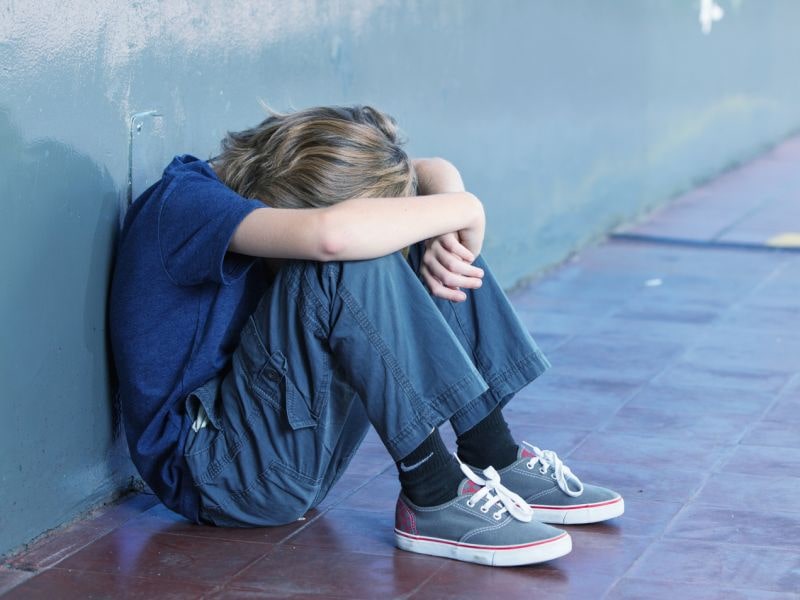Adolescence is the stage from childhood to adulthood and a time of major change in the evolution of any person.
These changes are biological, psychological and social, affecting the body, related to growth and the preparation of the organs for reproduction; the mind, capacity for abstraction and for making decisions by evaluating different alternatives and, on a social level, differentiating oneself from adults, the growing importance of friends to the detriment of the family.
The adolescent has much more autonomy than the child but maintains an important degree of dependence and it is still necessary to take care of him/her and be on top of him/her for his/her development to be optimal.
According to the WHO “half of mental illness begins before the age of 14, but most cases go undetected and untreated”. According to this organization, depression occupies an important place and suicide is the second cause of death among 15-19 year olds.
Not to mention alcohol and drug abuse which can lead to dangerous behaviour such as risky sexual practices or reckless driving. Eating disorders should be added to these problems.
It is therefore everyone’s responsibility to accompany them during this stage to ensure that they become responsible, mature and happy adults.
Some recommendations:
Relationship with the family.
It is important to leave them space to exercise their freedom, to explore and discover for themselves but equally important is to maintain a vigilant attitude to detect any changes in the behaviour of the adolescents that may alert us that something is not right.
It is necessary to organize family activities and not lose communication with them, so that they know that they can count on their parents when they have a problem or concern.

Limits
Teenagers need to discover the world for themselves, they are forming their adult identity and for this purpose they often oppose authority figures (parents, teachers…), at the same time they need and seek that those same figures set them some limits that help them to learn as far as they can go. It is necessary to find a balance between leaving them room for exploration and marking well the limits that they should not cross.
I respect
Teaching adolescents to respect themselves, others and the environment is essential to avoid risky behaviour.
Schedules and routines
During adolescence it is still of fundamental importance to maintain routines and schedules as in childhood because it helps them to structure, organize and limit themselves. Setting schedules and routines for meals, personal hygiene, study, help at home, free time…
Balanced diet
In a period of life where biological and hormonal changes are so important that a balanced diet is essential. Healthy eating helps to prevent certain health problems in the future and to maintain a healthy lifestyle as adults.
Even more so if we take into account that at this stage they start eating out, so they eat worse and also often tend to skip breakfast, the most important meal of the day when they are studying.
Sleep
Teenagers have a huge physical and psychological strain and need 9-10 hours of sleep a day to avoid the fatigue that diminishes their school performance and causes irritability.
Physical activity
One hour of physical activity per day is advisable, as well as outdoor activities and sports to help combat sedentary lifestyles.
Physical activity is essential as it provides benefits in all areas of the adolescent’s life; it improves physical, mental and social health, (it prevents overweight, promotes good posture, improves self-esteem and reduces symptoms of anxiety and depression, promotes socialization, improves concentration).
Social links
Teenagers are wanting to spend more time with friends than with family. In this sense it is important to show interest in meeting their friends, it gives them security and it is the only way to avoid bad company to assess the risks of falling into problems of substance abuse, unsafe sex etc. We should try to encourage positive social habits such as respect, honesty and friendship.
Internet/social networks
Today’s teenagers belong to the digital age and therefore their way of relating to the world is through the Internet and social networks. This often clashes with the analog world of adults.
This clash usually provokes in adults two opposite reactions, or the disinterest, the total carelessness and even the perverse use of such devices delegating the care and education of their children to the devices that entertain them to avoid them bothering, or on the contrary, the rejection and the prohibition of the use of these devices.
There is an urgent need to find a balance between these two extremes. On the one hand, we must understand that it is part of their way of relating to the world, but on the other hand, we must teach them that the digital media are tools and not an end in themselves.
We must avoid replacing personal face-to-face relationships with virtual ones that are partial and therefore unrealistic.

